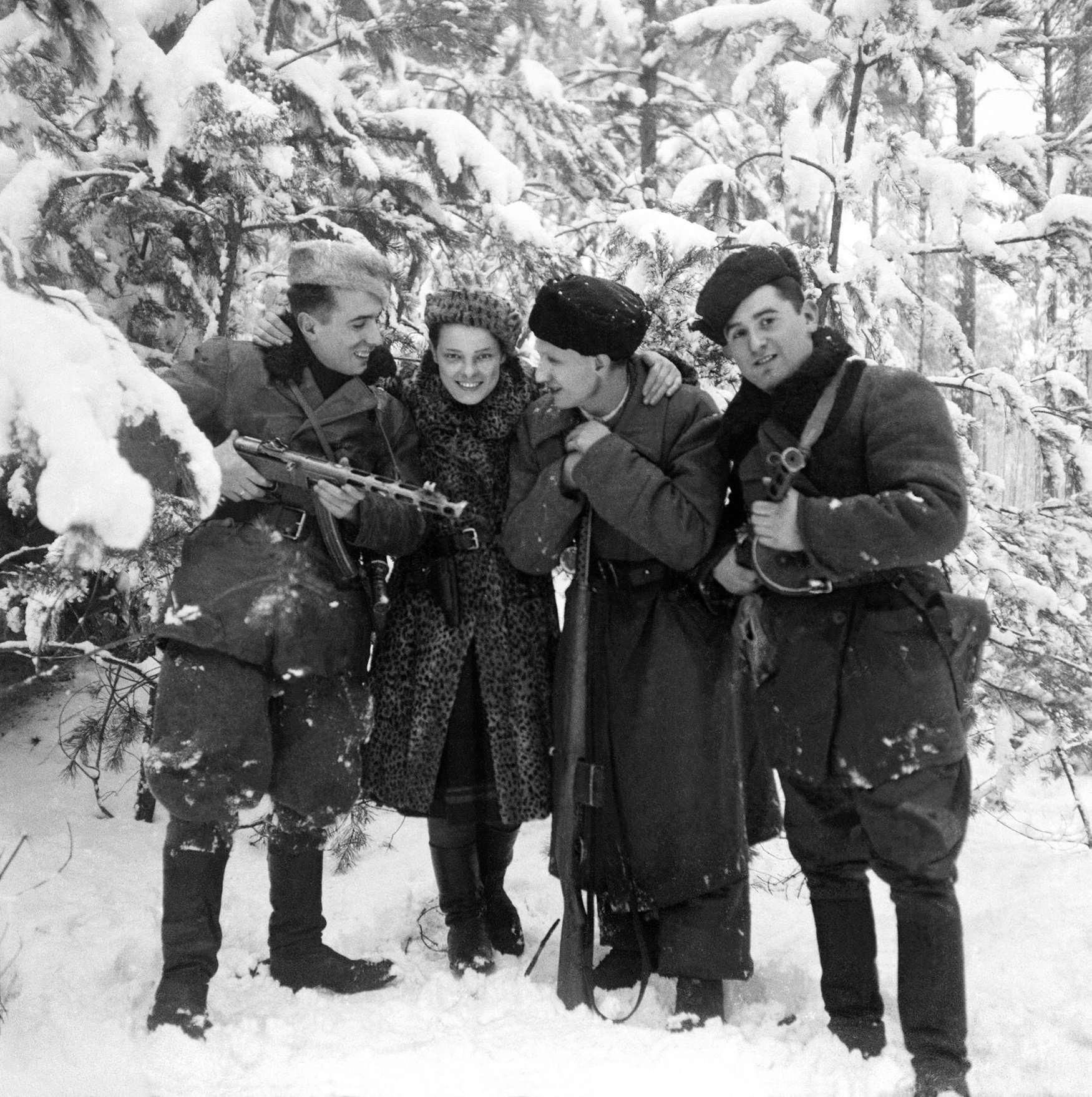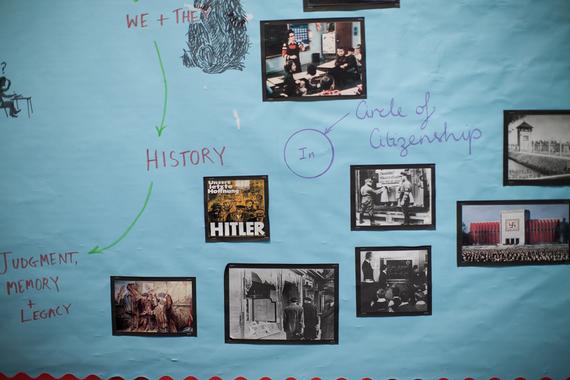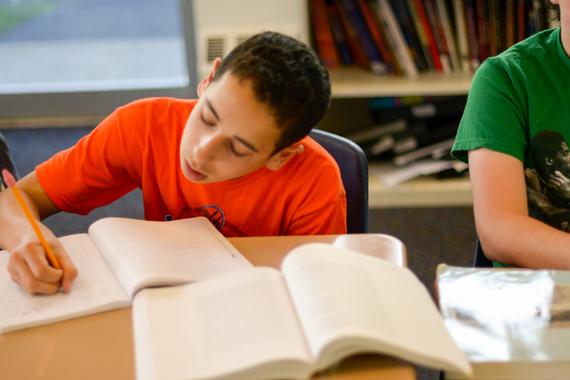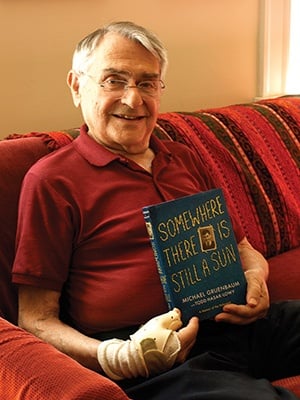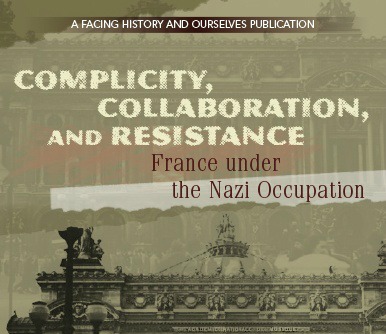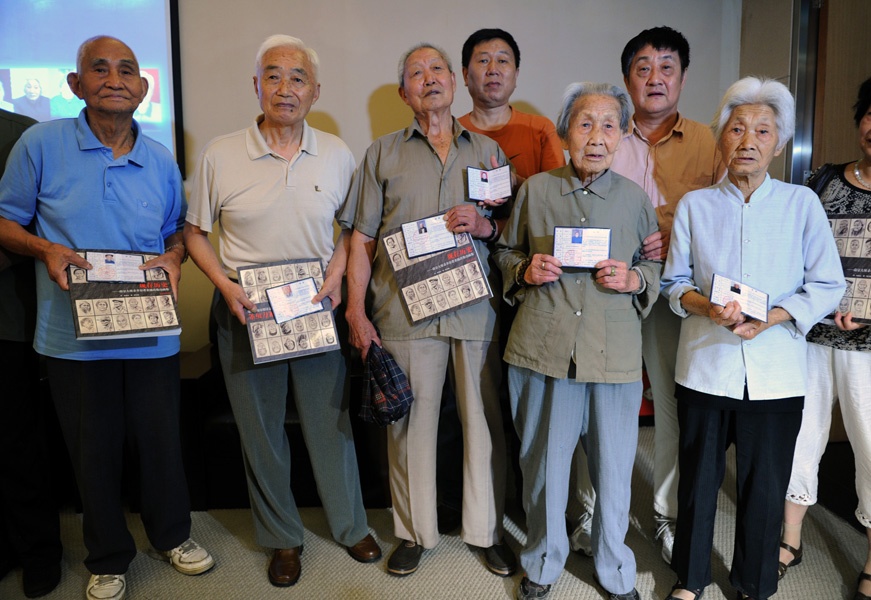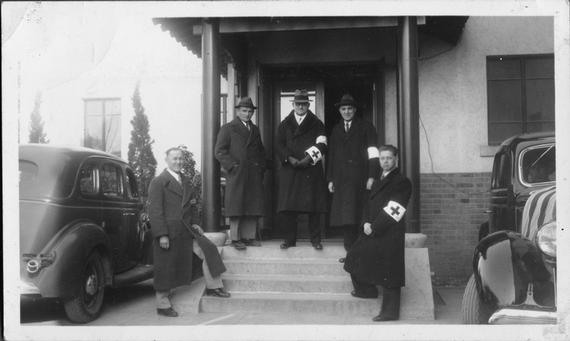Today, on Yom HaShoah Ve'Hagevurah, or Holocaust and Heroism Remembrance Day, we give pause to remember the six million Jews and the five million other targeted individuals who were murdered during the Holocaust. But we can also celebrate moments of bravery. Resistance has been tied into this commemoration from its inception in Israel in the 1950s.
Read More
Topics:
Holocaust,
Genocide/Collective Violence,
Partisans,
Jewish Educational Partisan Foundation
It is impossible to imagine what Raphael Lemkin would be thinking and doing if he were alive today. He dedicated his life to stopping mass violence against people based on their identities and to holding those who were responsible accountable for their crimes. As a young man, he studied past slaughters, including pogroms against Jews, and he immersed himself in understanding the mass murder of the Armenians by the Turkish state, the failure to stop it, and to punish those who were responsible for it. In the midst of his efforts to draw attention to these issues, he lost 49 family members, including his parents, in the Holocaust. They died in the Warsaw ghetto, in concentration camps, and in the death marches.
Read More
Topics:
Genocide/Collective Violence,
genocide
This month – National Poetry Month in the U.S. – is a great time to explore just how powerful words can be. When it comes to understanding difficult moments in history, poetry and writing can help students process and express their own thoughts about the world. Explore these three ways you can bring poetry into your classroom using tools from Facing History’s partner, USC Shoah Foundation – The Institute for Visual History and Education.
Read More
Topics:
English Language Arts,
Poetry,
Writing,
Genocide/Collective Violence,
Survivor Testimony,
ELA,
Holocaust Education,
IWitness
April is Genocide Awareness and Prevention Month. Throughout the month, we’ll be featuring stories on Facing Today that reflect upon genocide throughout history. Hearing personal stories of survival can be a powerful learning experience. In this post, we’re shining a light on the inspirational stories of two genocide survivors.
Read More
Topics:
Books,
International,
Holocaust,
Genocide/Collective Violence,
History,
Holocaust Education
Today - International Holocaust Remembrance Day - marks the 71st anniversary of the liberation of Auschwitz-Birkenau, the concentration camp that became the unofficial symbol of World War II. Yet, beyond the sobering images that typically come to mind, there is a complexity to understanding the choices people made that led to such death and destruction.
Read More
Topics:
Human Behavior,
Facing History Resources,
Holocaust,
Genocide/Collective Violence,
History,
Holocaust Education,
Vichy Regime
Life was pretty happy and full. Now on December 13, there came change that turned our world upside down. - Mr. Chen Deshou, a survivor of the Nanjing Atrocities
December 13th marks the 78th anniversary of the Nanjing Atrocities, when the lives of thousands of women, men, and children were turned upside down. This assault by the Japanese Imperial Army took place from December 13, 1937, through the end of March 1938. During this time soldiers ran riot in the captured Chinese capital, unleashing a spree of violence, murder, and rape on the population.
Read More
Topics:
Facing History Resources,
Genocide/Collective Violence,
The Nanjing Atrocities
Sir Nicholas Winton, a British humanitarian who saved more than 650 children through the Kindertransport during World War II, died on July 1, 2015, at the age of 106. Winton always humbly insisted he wasn't a hero; yet his inspiring story illuminates how courage, initiative, and compassion drive people to make a difference.
Read More
Topics:
Classrooms,
Teaching Strategies,
Antisemitism,
Choosing to Participate,
Students,
Teaching,
Holocaust,
Upstanders,
Genocide/Collective Violence,
Teachers,
Holocaust and Human Behavior,
Decision-making,
Holocaust Education
Acts of moral courage are not common, they are exceptional. People actively create opportunities to rescue or choose to help others. It can happen in a blink of an eye or after long deliberation, but these moments are not accidental.
Read More
Topics:
Rescue,
Facing History Resources,
Teaching,
Genocide/Collective Violence,
Teaching Resources,
History
I am not Armenian.
I did not grow up learning about the Armenian Genocide.
I attended schools in two of the best public school districts in Southern California and achieved not just an undergraduate degree, but two master's degrees. I had been teaching for several years before I ever learned about the Armenian Genocide.
Read More
Topics:
Armenian Genocide,
Facing History Resources,
Genocide/Collective Violence,
Teaching Resources,
Video,
History
In September 1939, just before the invasion of Poland and the beginning of the Nazi Holocaust, Adolf Hitler asked his generals, “Who today still speaks of the massacre of the Armenians?”
Read More
Topics:
Armenian Genocide,
Facing History Resources,
Genocide/Collective Violence,
Teaching Resources,
History

